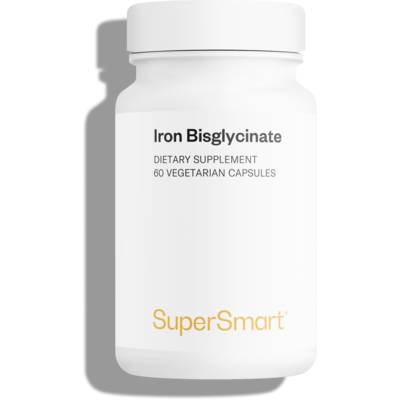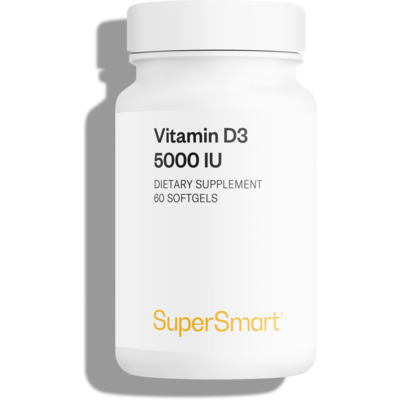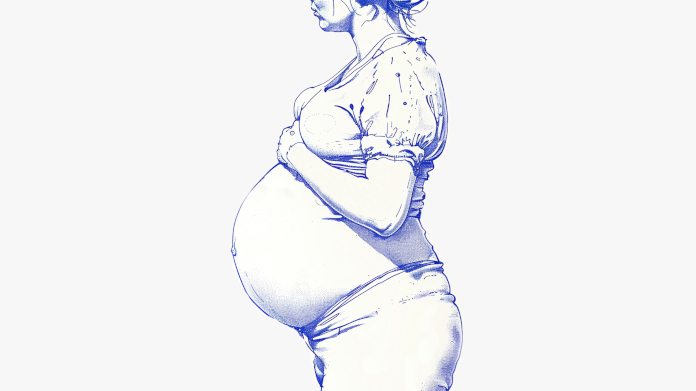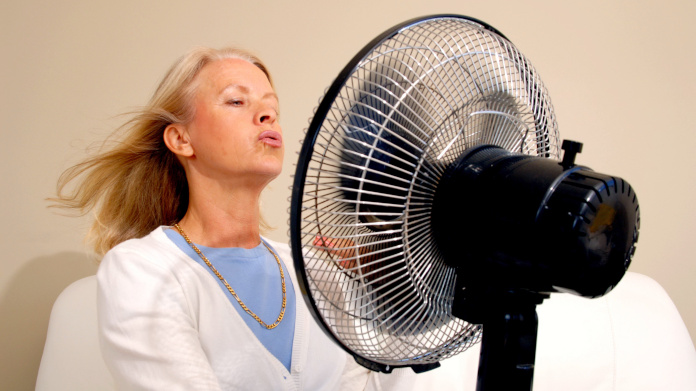Which supplements should you take after having a baby?
The hormonal maelstrom, the broken sleep … Plunged into the choppy waters of new motherhood, the young mum needs to take particularly good care of herself. Discover the best dietary supplements for providing support during the post-childbirth period.

Post-partum: the most common problems
The post-partum period (which extends from delivery to the return of periods) is a pivotal moment for the young mother, marking the end of pregnancy and the beginning of motherhood. It brings physical and emotional upheaval, with inevitable effects on her mood and physiological health (1).
Following the birth of her baby, the new mother is often unusually tired, both physically and mentally (2), as a result of several factors:
- the pregnancy itself, which has made significant demands on her body’s metabolic and energy resources;
- the physical trauma of labour;
- the broken nights or insufficient sleep initiated by the new-born’s arrival;
- the sometimes unconscious state of intensified alertness;
- the resumption of normal activities (running the house, shopping …)
Some women also experience the baby-blues (3). Caused by a combination of plummeting hormones and heightened emotions, this manifests in crying, irritability, anxiety or feelings of vulnerability. Fortunately, it’s only temporary, persisting for a few days after delivery (4).
These hormonal changes also produce physical effects of varying significance: water retention, weight gain, hair loss (5-6)… What’s more, the repositioning of pelvic organs can sometimes cause mild intestinal transit problems (7).
The young mum’s diet: foods to avoid
In order to fully recover from the demands of pregnancy and get on top of all her new responsibilities, the new mum should try and include in her diet all the nutrients necessary to feel revitalised (8). If she’s breastfeeding as well, she’ll need more calories, vitamin and minerals. An overly-restrictive diet is therefore not advisable, as it could lead to or exacerbate deficiencies.
But that doesn’t mean daily trips to the cake shop. A high-fat, high-sugar diet – along with smoking and drinking alcohol – overloads the emunctory organs and prevents them from properly eliminating toxins accumulated during pregnancy (9-11). Salt intake should also be restricted, especially in cases of water retention.
There are also specific foods which should be avoided because of their content of phytoestrogens likely to upset hormonal balance (12). Soya and linseeds have the highest concentrations of these.
What about tea and coffee? It’s tempting to turn to caffeine to keep pace with the demands of daily life, but stimulating drinks only provide an immediate ‘hit’, and in some women, may stimulate already over-sensitive nerves (13). It’s better to slow down a little, always remembering to stay well-hydrated: choose warm broths or herbal teas instead, to warm the body gently.
The best post-childbirth supplements
Smart mums can also support their ‘overloaded’ bodies with the help of dietary supplements, though consulting a health professional before starting any supplementation is strongly recommended, and is absolutely essential if the mother is breastfeeding.
The star nutrient of your morning orange juice, vitamin C directly helps to reduce the fatigue that affects most new mothers (14-15). Though L-ascorbic acid is the most common form found in supplements, other much less well-known forms actually offer better bioavailability (the supplement Asc2P uses phosphorylated ascorbate, a stable form of vitamin C that’s 20 times more powerful) (16).
Synthesised primarily when the skin is exposed to sunlight, vitamin D supports good immune system function and normal calcium levels, and helps maintain healthy muscle function. With its comprehensive action, it provides a helpful ‘shot in the arm’ to those suffering from post-partum blues, as long as the formulation chosen is adequately dosed (Vitamin D3 5000 IU, is one such example, delivered in a plant oil base for maximum absorption) (17-18).
To breathe new life into dull or brittle hair, new mums can make liberal use of biotin (alias vitamin B8 or the ‘beauty vitamin’) which plays a direct role in helping to maintain healthy skin and hair (19). Found in brewer’s yeast, offal, egg yolk and mushrooms, it is also available in supplement form (such as in the product Biotin).
The blood loss associated with childbirth results in a lack of iron (20), yet for nursing mothers, this essential trace element plays a vital role in ensuring their baby develops normally (21). It’s therefore crucial to rebuild reserves by eating more iron-rich foods (red meat, liver, seafood, green leafy vegetables ...). To maximise your intake, it’s also wise to consider supplementing with iron (with, for example, Iron Bisglycinate, a specific form of chelated iron offering excellent bioavailability (22).
Vitamin B12 fulfillls numerous physiological functions. In particular, it supports normal formation of red blood cells and energy metabolism and is also involved in cell division. It therefore plays a direct role in ensuring healthy development of the breastfed baby (23). As it’s completely absent from the plant kingdom, vegan mums should definitely consider supplementation (the product Methylcobalamine contains the most active form of vitamin B12) (24).
And what about fatty acids? Maternal intake of DHA (docosahexaenoic acid), a marine-source omega-3 fatty acid, contributes to normal brain and vision development in the breastfed baby (25). As it’s only found in oily fish (sardines, mackerel, anchovies …), our diets often contain too little. So it makes sense to take a DHA supplement to ensure a sufficient intake (made from sustainably-fished marine sources, the supplement Super DHA combines docosahexaenoic acid with EPA, another form of omega-3, for optimal synergistic effects) (26-27).
SuperSmart ADVICE
References
- Chauhan G, Tadi P. Physiology, Postpartum Changes. [Updated 2021 Nov 21]. In: StatPearls [Internet]. Treasure Island (FL): StatPearls Publishing; 2022 Jan-. Available from: https://www.ncbi.nlm.nih.gov/books/NBK555904/
- Henderson J, Alderdice F, Redshaw M. Factors associated with maternal postpartum fatigue: an observationalstudy. BMJ Open. 2019 Jul 27;9(7):e025927. doi: 10.1136/bmjopen-2018-025927. PMID: 31352411; PMCID: PMC6661702.
- Balaram K, Marwaha R. Postpartum Blues. [Updated 2022 Jun 7]. In: StatPearls [Internet]. Treasure Island (FL): StatPearls Publishing; 2022 Jan-. Available from: https://www.ncbi.nlm.nih.gov/books/NBK554546/
- Manjunath NG, Venkatesh G, Rajanna. Postpartum Blue is Common in Socially and Economically Insecure Mothers. Indian J Community Med. 2011 Jul;36(3):231-3. doi: 10.4103/0970-0218.86527. PMID: 22090680; PMCID: PMC3214451.
- Farpour-Lambert NJ, Ells LJ, Martinez de Tejada B, Scott C. Obesity and Weight Gain in Pregnancy and Postpartum: an Evidence Review of Lifestyle Interventions to Inform Maternal and Child Health Policies. Front Endocrinol (Lausanne). 2018 Sep 26;9:546. doi: 10.3389/fendo.2018.00546. PMID: 30319539; PMCID: PMC6168639.
- Mirallas O, Grimalt R. The Postpartum Telogen Effluvium Fallacy. Skin Appendage Disord. 2016 May;1(4):198-201. doi: 10.1159/000445385. Epub 2016 Apr 20. PMID: 27386466; PMCID: PMC4908443.
- Turawa EB, Musekiwa A, Rohwer AC. Interventions for preventing postpartum constipation. Cochrane Database Syst Rev. 2020 Aug 5;8(8):CD011625. doi: 10.1002/14651858.CD011625.pub3. PMID: 32761813; PMCID: PMC8094226.
- Sebeta A, Girma A, Kidane R, Tekalign E, Tamiru D. Nutritional Status of Postpartum Mothers and Associated Risk Factors in Shey-Bench District, Bench-Sheko Zone, Southwest Ethiopia: A Community Based Cross-Sectional Study. Nutr Metab Insights. 2022 Apr 24;15:11786388221088243. doi: 10.1177/11786388221088243. PMID: 35493421; PMCID: PMC9044780.
- Simmons VN, Sutton SK, Quinn GP, Meade CD, Brandon TH. Prepartum and postpartum predictors of smoking. Nicotine Tob Res. 2014 Apr;16(4):461-8. doi: 10.1093/ntr/ntt177. Epub 2013 Nov 7. PMID: 24203933; PMCID: PMC3954426.
- Jagodzinski T, Fleming MF. Postpartum and alcohol-related factors associated with the relapse of risky drinking. J Stud Alcohol Drugs. 2007 Nov;68(6):879-85. doi: 10.15288/jsad.2007.68.879. PMID: 17960306; PMCID: PMC2064002.
- Martin JC, Joham AE, Mishra GD, Hodge AM, Moran LJ, Harrison CL. Postpartum Diet Quality: A Cross-Sectional Analysis from the Australian Longitudinal Study on Women's Health. J Clin Med. 2020 Feb 6;9(2):446. doi: 10.3390/jcm9020446. PMID: 32041231; PMCID: PMC7073585.
- Domínguez-López I, Yago-Aragón M, Salas-Huetos A, Tresserra-Rimbau A, Hurtado-Barroso S. Effects of Dietary Phytoestrogens on Hormones throughout a Human Lifespan: A Review. Nutrients. 2020 Aug 15;12(8):2456. doi: 10.3390/nu12082456. PMID: 32824177; PMCID: PMC7468963.
- Jahrami H, Al-Mutarid M, Penson PE, Al-Islam Faris M, Saif Z, Hammad L. Intake of Caffeine and Its Association with Physical and Mental Health Status among University Students in Bahrain. 2020 Apr 10;9(4):473. doi: 10.3390/foods9040473. PMID: 32290044; PMCID: PMC7230284.
- Base de données sur les médicaments et l'allaitement (LactMed) [Internet]. Bethesda (MD) : Bibliothèque nationale de médecine (États-Unis) ; 2006-. Vitamine C. [Mise à jour le 18 octobre 2021]. Disponible sur : https://www.ncbi.nlm.nih.gov/books/NBK544628/
- Base de données sur les médicaments et l'allaitement (LactMed) [Internet]. Bethesda (MD) : Bibliothèque nationale de médecine (États-Unis) ; 2006-. Vitamine C. [Mise à jour le 18 octobre 2021]. Disponible sur : https://www.ncbi.nlm.nih.gov/books/NBK544628/
- Nagao N, Nakayama T, Etoh T, Saiki I, Miwa N. Tumor invasion is inhibited by phosphorylated ascorbate via enrichment of intracellular vitamin C and decreasing of oxidative stress. J Cancer Res Clin Oncol. 2000 Sep;126(9):511-8. doi: 10.1007/s004320000120. PMID: 11003563.
- Abedi P, Bovayri M, Fakhri A, Jahanfar S. The Relationship Between Vitamin D and Postpartum Depression in Reproductive-Aged Iranian Women. J Med Life. 2018 Oct-Dec;11(4):286-292. doi: 10.25122/jml-2018-0038. PMID: 30894884; PMCID: PMC6418338.
- Aghajafari F, Letourneau N, Mahinpey N, Cosic N, Giesbrecht G. Vitamin D Deficiency and Antenatal and Postpartum Depression: A Systematic Review. 2018 Apr 12;10(4):478. doi: 10.3390/nu10040478. PMID: 29649128; PMCID: PMC5946263.
- Trüeb RM. Serum Biotin Levels in Women Complaining of Hair Loss. Int J Trichology. 2016 Apr-Jun;8(2):73-7. doi: 10.4103/0974-7753.188040. PMID: 27601860; PMCID: PMC4989391.
- Guideline: Iron Supplementation in Postpartum Women. Geneva: World Health Organization; 2016. BACKGROUND. Available from: https://www.ncbi.nlm.nih.gov/books/NBK379991/
- Friel J, Qasem W, Cai C. Iron and the Breastfed Infant. Antioxidants (Basel). 2018 Apr 6;7(4):54. doi: 10.3390/antiox7040054. PMID: 29642400; PMCID: PMC5946120.
- Name JJ, Vasconcelos AR, Valzachi Rocha Maluf MC. Iron Bisglycinate Chelate and Polymaltose Iron for the Treatment of Iron Deficiency Anemia: A Pilot Randomized Trial. Curr Pediatr Rev. 2018;14(4):261-268. doi: 10.2174/1573396314666181002170040. PMID: 30280670; PMCID: PMC6416187.
- Roumeliotis N, Dix D, Lipson A. Vitamin B(12) deficiency in infants secondary to maternal causes. CMAJ. 2012 Oct 2;184(14):1593-8. doi: 10.1503/cmaj.112170. Epub 2012 Jun 18. PMID: 22711730; PMCID: PMC3470622.
- Paul C, Brady DM. Comparative Bioavailability and Utilization of Particular Forms of B12 Supplements With Potential to Mitigate B12-related Genetic Polymorphisms. Integr Med (Encinitas). 2017 Feb;16(1):42-49. PMID: 28223907; PMCID: PMC5312744.
- Lauritzen L, Brambilla P, Mazzocchi A, Harsløf LB, Ciappolino V, Agostoni C. DHA Effects in Brain Development and Function. 2016 Jan 4;8(1):6. doi: 10.3390/nu8010006. PMID: 26742060; PMCID: PMC4728620.
- Levant B. N-3 (omega-3) Fatty acids in postpartum depression: implications for prevention and treatment. Depress Res Treat. 2011;2011:467349. doi: 10.1155/2011/467349. Epub 2010 Oct 27. PMID: 21151517; PMCID: PMC2989696.
- Ueno HM, Higurashi S, Shimomura Y, Wakui R, Matsuura H, Shiota M, Kubouchi H, Yamamura JI, Toba Y, Kobayashi T. Association of DHA Concentration in Human Breast Milk with Maternal Diet and Use of Supplements: A Cross-Sectional Analysis of Data from the Japanese Human Milk Study Cohort. Curr Dev Nutr. 2020 Jun 15;4(7):nzaa105. doi: 10.1093/cdn/nzaa105. PMID: 32666036; PMCID: PMC7343538.
Keywords
1 Days
My skin is clearing up nicely!
Pretty good for my skin so far.
Christian
3 Days
The new packaging is excellent
The new packaging is excellent - finally! No more squashed boxes and torn envelopes.
GORAN
4 Days
Great Product
Great Product
Larry Garrett
9 Days
Quick shipping
Quick shipping; good price. No issues!
Mary McCarty
10 Days
Thr product is very good and is helping…
Thr product is very good and is helping me on my health. Then is always on time
LUGO Luz
12 Days
Buying was fine
Buying was fine. I had problems with the website not recognizing my login info, and had to call to get it fixed. Other than that, everything was good.
David S. Clark
13 Days
Your super maca and super ginseng are…phenomenal
Your super maca and super ginseng are phenomenal supplements that compliment each other when taking them together. Fantastic feeling of well-being and lots of mid day energy without the crash.
Keith Mason
15 Days
I have had amazing results with every…
I have had amazing results with every supplement I've purchased. I am extremely satisfied with this company
kirstin Torres
16 Days
Fine products
Fine products . They are on the leading edge of online supplements. The only issue -so far-is they sometime run out of subscription items.
Jason Argos
18 Days
The ordering process is very user…
The ordering process is very user friendly and the products always come in a timely manner.
CARTER Rhonda
19 Days
The price for Dr
The price for Dr. Pero's AC-11 is reasonable and in line with his views. (my former colleague). Keep it pure.
CAMPBELL Clayton
22 Days
Right on every time.
Right on every time.
Arthur Nicholas
25 Days
They are cheaper than everyone else and…
They are cheaper than everyone else and the shipping was fast. Great company.
Patricia Adams
32 Days
Availability of quality health…
Availability of quality health supplements and it's wide variety is impressive. Ordering is seamless and shipping even during the holidays is well streamlined.
Mohamad Hussein
46 Days
A Product worth waiting for when not…
A Product worth waiting for when not available and then arriving as a surprise!
DOMINIC







